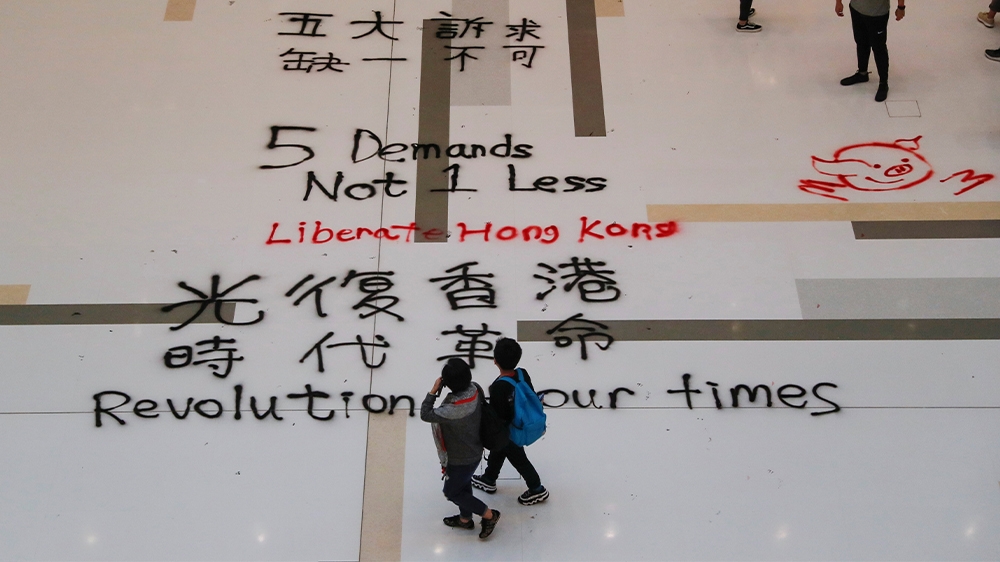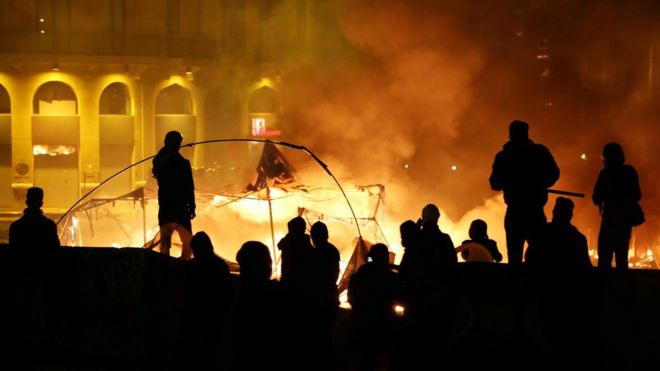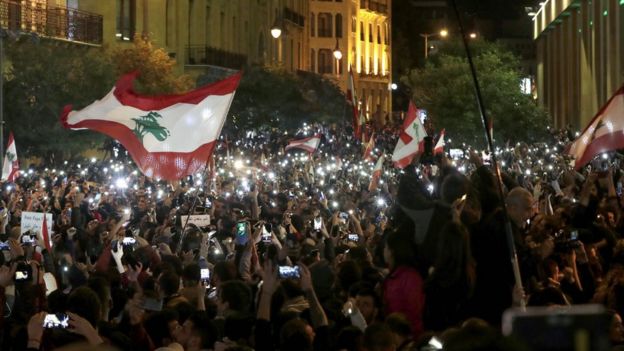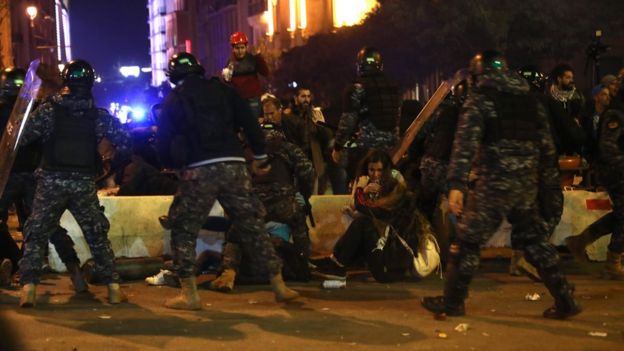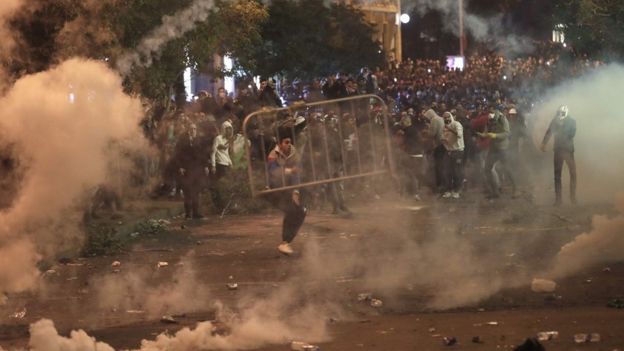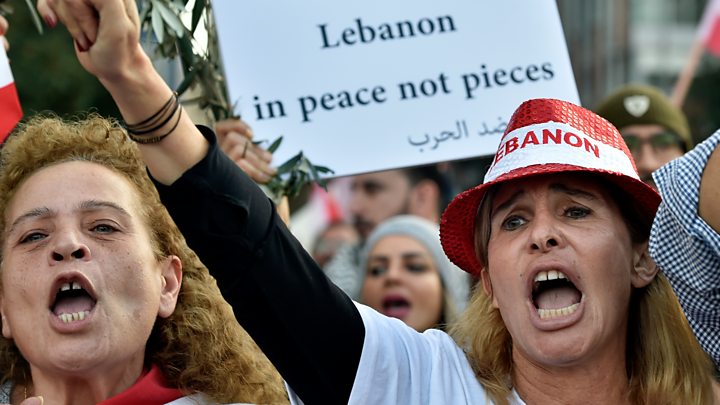Military police remove climate protesters from Schiphol airport
Hundreds of demonstrators call for international hub in Amsterdam to curb emissions
Georgina Hayes
Sat 14 Dec 2019 15.41 GMT
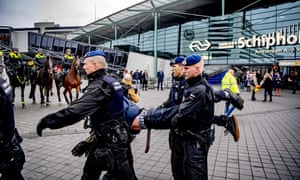
Royal military police remove a protester from the main hall of Schiphol airport.
Photograph: Robin Utrecht/EPA
Dutch military police have begun forcibly removing a group of climate protesters at Schiphol airport, in Amsterdam, after they refused to leave during a demonstration organised by Greenpeace.
Hundreds of protesters attended the demonstration on Saturday calling on the international air hub to adopt a plan to curb greenhouse emissions. The group had been allowed to protest outside the building only, but they broke that restriction, arguing that citizens’ rights to peaceful protest should not be restricted.
Protesters waved banners saying “Tax the plane, take the train” and chanted slogans of “climate justice”, while Greenpeace activists told the crowd: “Schiphol is one the biggest airports in Europe and yet they still want to expand it. That’s not normal!”
Dutch military police have begun forcibly removing a group of climate protesters at Schiphol airport, in Amsterdam, after they refused to leave during a demonstration organised by Greenpeace.
Hundreds of protesters attended the demonstration on Saturday calling on the international air hub to adopt a plan to curb greenhouse emissions. The group had been allowed to protest outside the building only, but they broke that restriction, arguing that citizens’ rights to peaceful protest should not be restricted.
Protesters waved banners saying “Tax the plane, take the train” and chanted slogans of “climate justice”, while Greenpeace activists told the crowd: “Schiphol is one the biggest airports in Europe and yet they still want to expand it. That’s not normal!”
Greenpeace(@Greenpeace)
In a peaceful protest, hundreds of activists came to the airport to demand a climate action plan for Schiphol. https://t.co/6PDbgszvkr December 14, 2019
One protester reportedly chained himself to a pillar during the demonstration, which took place in the hall that leads to the arrivals and departures section of the airport
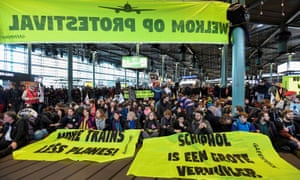
FacebookTwitterPinterest The protesters inside the airport. Photograph: Piroschka van de Wouw/Reuters
Dozens of police from the Marechausse, the force that guards Dutch borders, began removing the protesters one at a time, dragging or carrying those who resisted
“After multiple warnings to leave Schiphol Plaza peacefully, the Marechausse has now begun arresting Greenpeace protesters,” the force said in a statement.
A Schiphol spokesman, Hans van Kastel, said no flights had been disrupted by the demonstration.
In its call for people to attend the protest, Greenpeace said on its website: “We’re in the middle of a climate crisis, but the big polluter Schiphol is being allowed to keep growing and polluting even more.”
Schiphol, which is owned by the Dutch state, says it does have a climate plan, which includes cutting emissions on the ground by using electric vehicles.

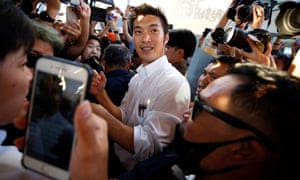
![Demonstrators hold placards depicting eyes - in reference to police pellets striking demonstrators' eyes - during a protest against President Sebastian Pinera's government in Santiago, Chile. Pinera has promised support for victims of human rights violations by security forces during protests in Chile, and a firm commitment to achieve truth and justice. [Martin Bernetti/AFP]](https://www.aljazeera.com/mritems/Images/2019/12/15/7289854d6f3c4078a861e2a62f747af2_8.jpg)

